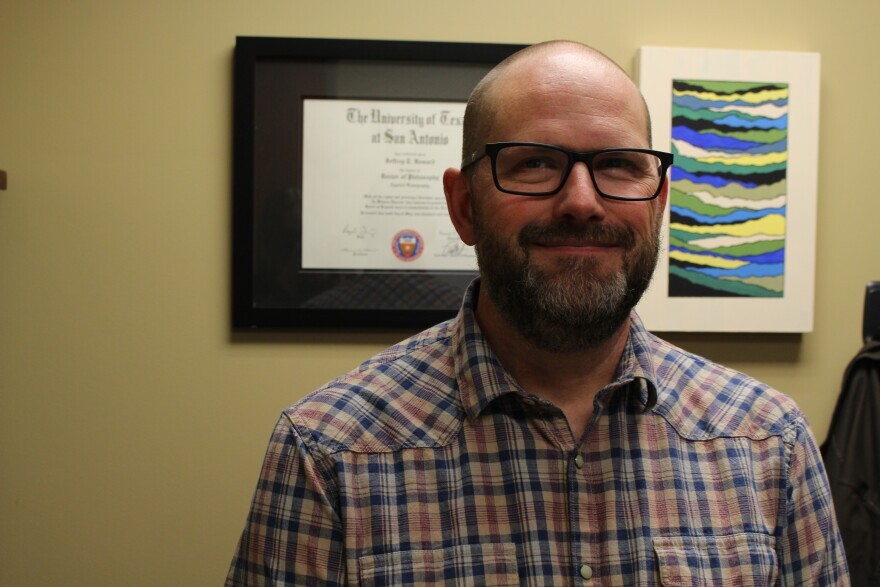Traumatic brain injury, or TBI, has been called the “signature wound” of the post-9/11 wars, partly because of the widespread use of improvised explosive devices in Iraq and Afghanistan. Advances in body armor and emergency medicine enabled service members to survive injuries that would have been fatal in previous wars.
“A lot of those happen to be head injuries, or what would be grouped into the moderate to severe TBI category,” said Jeffrey Howard, an associate professor of public health at UTSA and author of a new study published in JAMA Network Open. “So that was at the heart of why we were focused on this particular injury: It's highly prevalent.”
Howard and his team studied data on more than 2.5 million post-9/11 military veterans and found that they experienced excess mortality rates compared with the total U.S. population. Not only that, but there were dramatically higher mortality risks for veterans exposed to TBI across all causes of death — especially cancer, cardiovascular disease, accidents, suicide and homicide.
“What is clear is that there's a problem here. It’s multifaceted, multi-dimensional. It cuts across medical issues and healthcare issues and into societal issues,” Howard said.
Howard pointed out that there’s a lot we don’t know about how traumatic brain injury affects veterans’ bodies and behaviors.

“One of our thoughts is that, when individuals are exposed to these kinds of traumatic injuries, it results in a lot of physiological and psychosocial changes. So, there can be things that affect the cognitive performance of the individuals — that can impact things like level of physical activity, impulsivity — which can lead to risky behaviors like substance abuse.”
Those factors could affect major systems in the body, Howard added.
“From a physiological standpoint, one of the things that we've been really interested in — not just as it relates to TBI, but traumatic injury in general — is that if the injury is severe enough, what can happen is the development of a chronic inflammatory state, and that can lead to further physiological dysregulation of multiple systems.”
Howard hopes his work inspires further research into the links between TBI and poor long term health outcomes. That way, communities can come up with ways to intervene.
“We definitely need more research into the detailed mechanisms of how these health risks arise,” he said. “The only way to do that well is by having some more investment in these kinds of long term cohort studies.”




